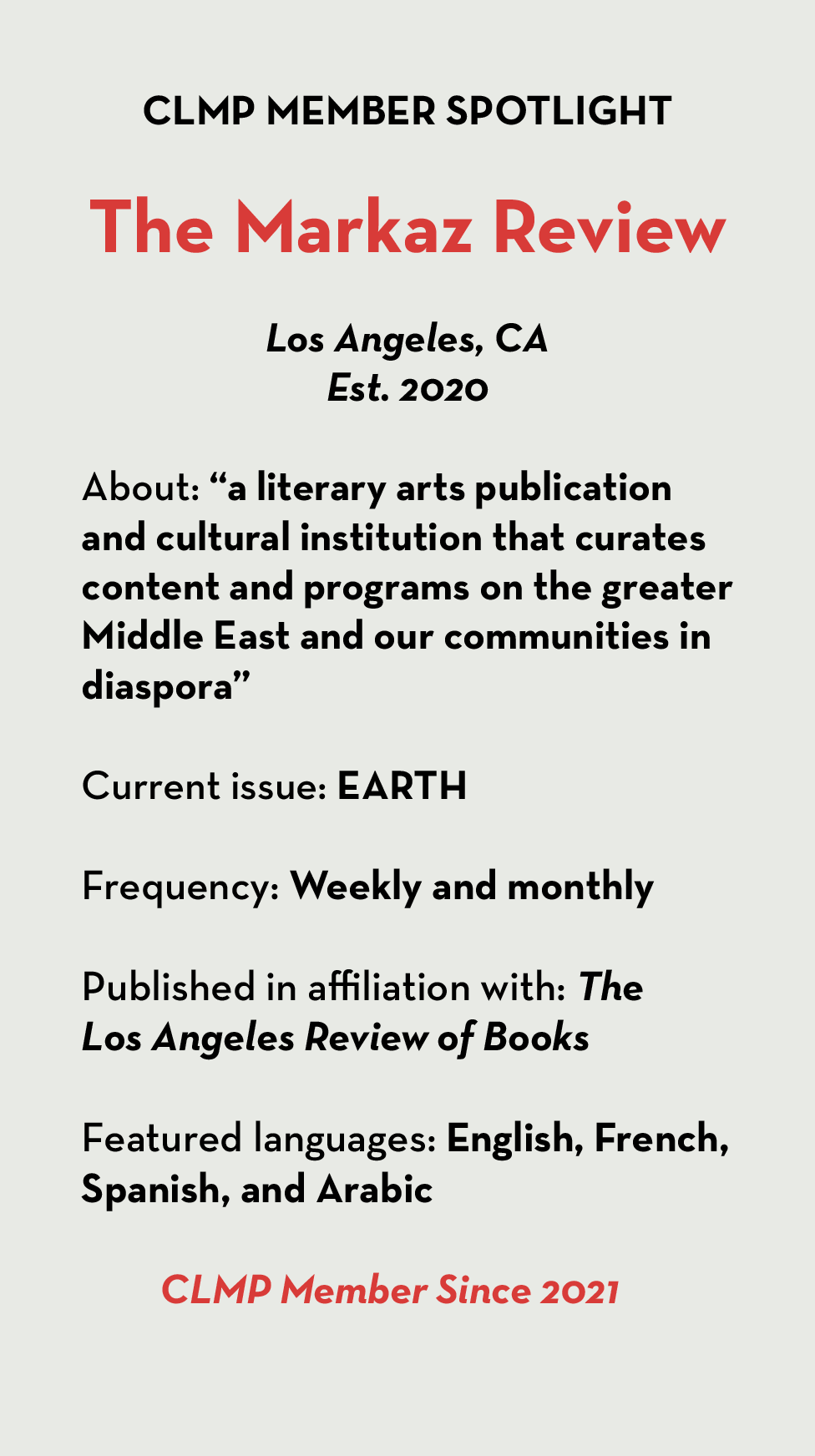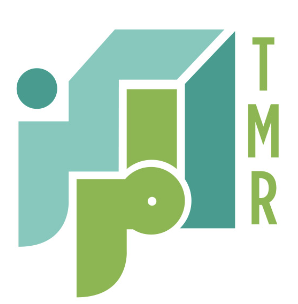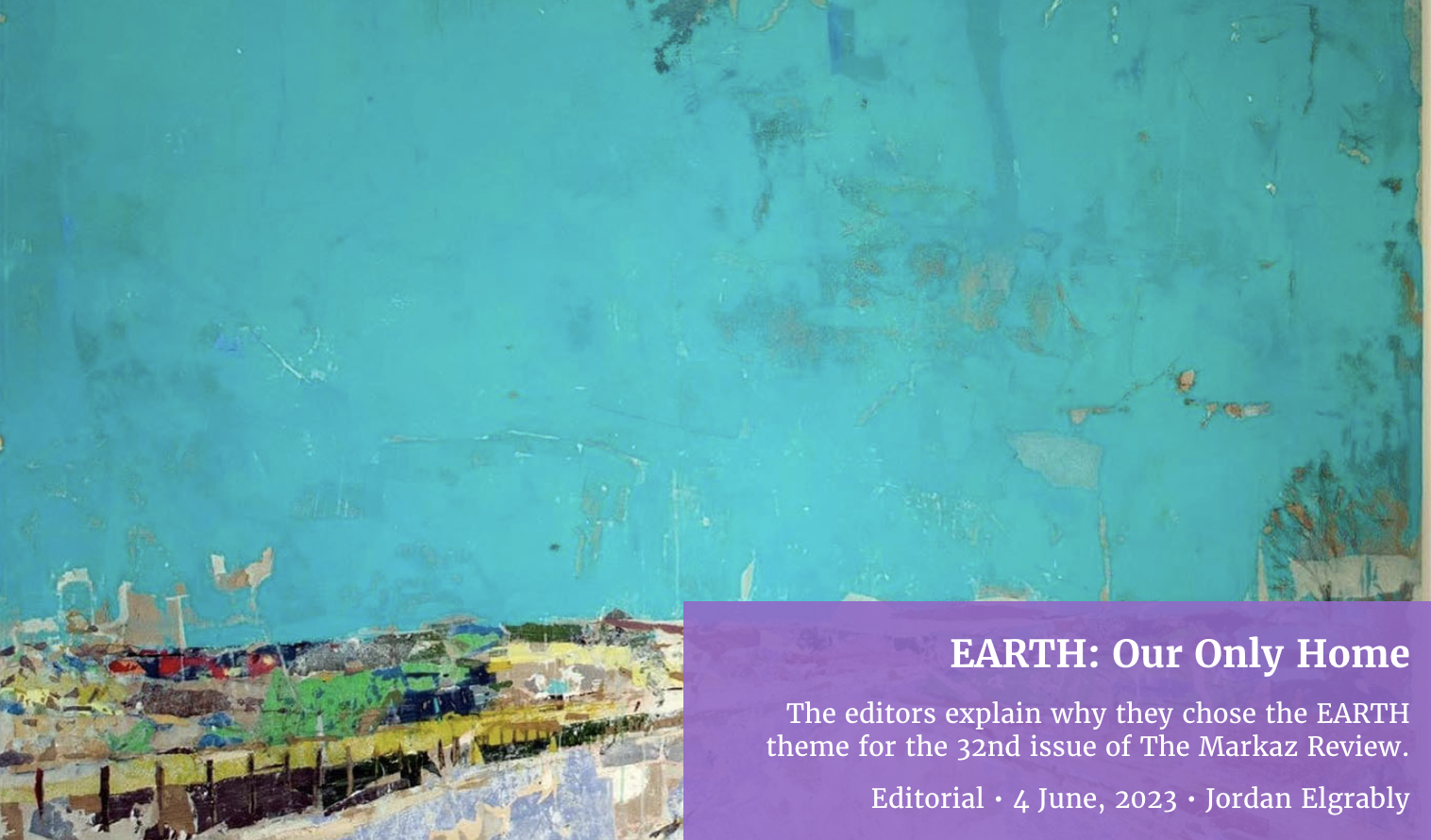We spoke with Jordan Elgrably, the editor in chief of The Markaz Review, in this Member Spotlight.
What is the history behind The Markaz Review? When was it founded and what is its mission?
 We launched The Markaz Review in the fall of 2020, after The Markaz, a cultural center in Los Angeles, closed definitively in the midst of the pandemic. I finally felt the timing was right—in fact, Tom Lutz, the founder of the Los Angeles Review of Books, had urged me to consider starting up just such a review back in 2015, but I wasn’t available.
We launched The Markaz Review in the fall of 2020, after The Markaz, a cultural center in Los Angeles, closed definitively in the midst of the pandemic. I finally felt the timing was right—in fact, Tom Lutz, the founder of the Los Angeles Review of Books, had urged me to consider starting up just such a review back in 2015, but I wasn’t available.
The Markaz Review really is the combined result of many people. I say that because for more than twenty years, I’ve been part of a network of highly motivated writers, artists, filmmakers, academics, and journalists doing work that serves as a counterweight to the sort of orientalism and simplistic xenophobic thinking around Arabs, Muslims, and others from the greater Middle East region, also called SWANA in some circles. A number of the people in this network are now our contributing editors and writers; they are busy authors or are engaged in other pursuits, including journalism and filmmaking.
I should stress that The Markaz Review is a nonprofit publication, an online community, and a sort of intellectual co-op that includes contributors from the Arab world, Iran, Turkey, Afghanistan, Pakistan and North Africa. We think of ourselves as a creative and literary destination that seeks to erase the boundaries among peoples and celebrate culture and diversity. Markaz, by the way, means center in Arabic as well as Persian, Hebrew, Urdu, and Turkish.
Why is it important to foster this dedicated online space for creative and literary work by artists from the greater Middle East?
 Because Arabs, Muslims, and other cultural minorities in American publishing and entertainment are still marginalized, underrepresented, and/or caricatured. As the New York Times reported back in 2020, in a survey of works of fiction published between 1950 and 2018, “95 percent were written by white people.” Not to get into a colorism discussion—because Arabs and Iranians can identify as, or be considered, both white and Black—the whole point of The Markaz Review is to open up our discourse, to broaden the conversation. Our contributors are Arab, they are often women, they are queer, they may be Iranian or Afghan or Pakistani, they might be Moroccan or Tunisian Jews or Egyptian Copts or Lebanese Armenians. The point is that we can’t let ourselves be divided by race, which is an artificial construct to begin with, nor let ourselves fall into the argument for or against immigration. Humans have always migrated, and with the climate crisis, we are going to see more and more refugees flowing toward Europe and the Americas.
Because Arabs, Muslims, and other cultural minorities in American publishing and entertainment are still marginalized, underrepresented, and/or caricatured. As the New York Times reported back in 2020, in a survey of works of fiction published between 1950 and 2018, “95 percent were written by white people.” Not to get into a colorism discussion—because Arabs and Iranians can identify as, or be considered, both white and Black—the whole point of The Markaz Review is to open up our discourse, to broaden the conversation. Our contributors are Arab, they are often women, they are queer, they may be Iranian or Afghan or Pakistani, they might be Moroccan or Tunisian Jews or Egyptian Copts or Lebanese Armenians. The point is that we can’t let ourselves be divided by race, which is an artificial construct to begin with, nor let ourselves fall into the argument for or against immigration. Humans have always migrated, and with the climate crisis, we are going to see more and more refugees flowing toward Europe and the Americas.
As a virtual center, we realize that some people have grown weary of Zooming. While we expect to be organizing an increasing number of public programs and live events, we will continue gathering online for those faraway.
Many issues of The Markaz Review address specific themes, with recent issues titled DOHA, HOME, and FREEDOM. How do you select the themes for your upcoming issues, and how do you go about curating around these themes?
We have biweekly or monthly editorial meetings where we brainstorm and come up with the core concept, which we then elaborate over time until we work up a call for submissions, and begin curating essays and fiction.
On June 4 we published our most recent themed issue, EARTH: Our Only Home, which is our third exploration on an environmental theme, after WATER and FIRE. Our double summer literary issue drops on the first Sunday in July and will be primarily fiction. Our September issue is devoted to architecture, design and urbanism, and our October issue will be entitled PUBLIC INTELLECTUAL.
Can you tell us about The Markaz Review’s bookgroup and meetups?
We launched our monthly bookgroup thanks to Rana Asfour, a Jordanian who lives and works between Abu Dhabi and London, who became our managing editor this past January. The June 2023 bookgroup selection was the novel Enter Ghost by Isabella Hammad (Grove Atlantic); previously featured books include the novel Waiting for the Past by Hadiya Hussein, translated from the Arabic by Barbara Romaine (Syracuse University Press), and the memoir The Girl Who Fell to Earth by Sophia Al-Maria (Harper Perennial). People who are interested in joining can sign up here.
We’ve recently brought in a new community manager, who will be organizing new virtual meetups for a larger range of cultures and professional interests. As we open new meetups, we’ll post word on social media.
The Markaz Review will also be bringing back our podcast, Radio Tabbouli, this year. Things are going to get very interesting!
How can interested writers submit their work to The Markaz Review?
The best way over the transom is to just email [email protected] with your query or completed work, and one of us will get back to you. By the way, all published contributions receive an honorarium, and that has been true from our very first issue, BEIRUT. I’m happy that we have been able to raise our rates for writers three times since 2020. Writers publishing in The Markaz Review do not necessarily have to be ethnically Arab or from another Middle Eastern culture, but should have a strong interest in and affinity for the region.

